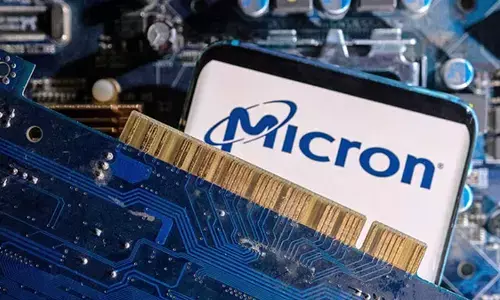IBM's prototype 'brain-like' chip promises greener AI
Share :

Tech major IBM has said that its prototype 'brain-like' chip could make artificial intelligence (AI) more energy efficient.
San Francisco: Tech major IBM has said that its prototype 'brain-like' chip could make artificial intelligence (AI) more energy efficient.
There are growing concerns about the emissions generated by the large warehouses filled with computers that power AI systems, reports the BBC.
According to IBM, its prototype could lead to more efficient, less battery-draining AI chips for smartphones.
The prototype's effectiveness is due to components that function similarly to connections in human brains, the tech major said.
Compared to traditional computers, "the human brain is able to achieve remarkable performance while consuming little power", said scientist Thanos Vasilopoulos, based at IBM's research lab in Zurich, Switzerland.
Vasilopoulos said that superior energy efficiency would mean "large and more complex workloads could be executed in low power or battery-constrained environments", such as cars, mobile phones and cameras.
"Additionally, cloud providers will be able to use these chips to reduce energy costs and their carbon footprint," he added.
The majority of chips are digital which means that information is stored as 0s and 1s, but the new chip makes use of memristors, which are analogue components that can store a variety of numbers.
According to Prof Ferrante Neri of the University of Surrey, memristors are a type of computing that is "nature-inspired" and imitates brain function.
"Interconnected memristors can form a network resembling a biological brain," he said.
In terms of the future of chips utilising this technology, he was cautiously optimistic: "These advancements suggest that we may be on the cusp of witnessing the emergence of brain-like chips in the near
future."
However, Neri noted that creating a memristor-based computer is not an easy task and that there will be many obstacles in the way of general adoption, such as high material costs and challenging production processes.
"Using these components makes the new chip more energy efficient but the new chip also has digital elements," the report said.
This makes the chip easier to insert into existing AI systems.
In the future, the tech major hopes that chips in phones and cars could be more efficient, leading to longer battery life.









